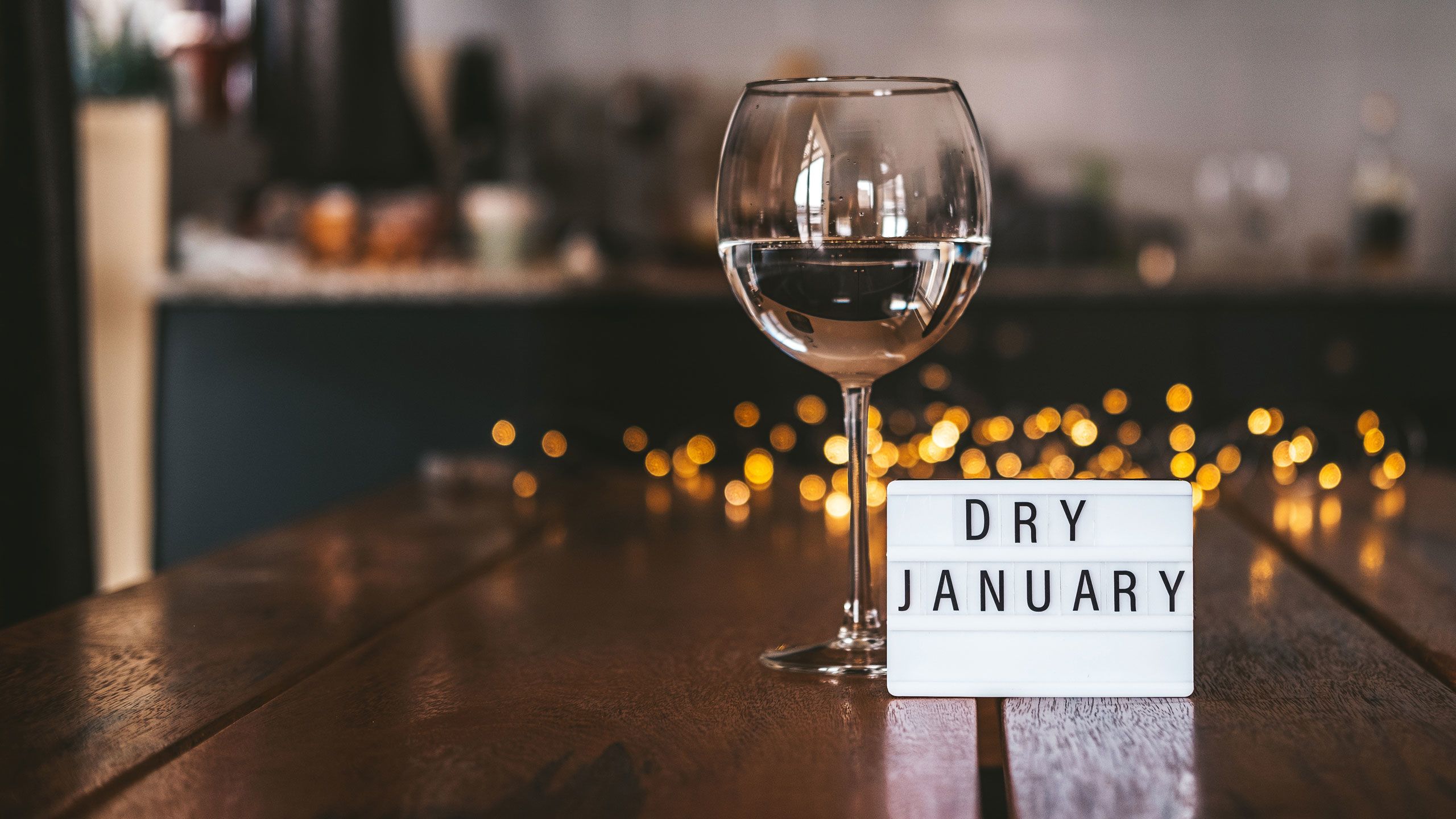Cold Turkey:
Embracing Dry January and
New Year’s Resolutions

The fresh start of the New Year provides the perfect opportunity to embrace healthier habits. Dry January, in which participants swear off alcohol for the first month of the year, has turned New Year’s resolutions into a movement. In 2022, nearly one in five adults participated in a Dry January challenge, up from 13 percent in 2021. The trend has been particularly popular among the 18-to-34 age group in 2023, with data showing that up to 40 percent have chosen to either reduce or eliminate their monthly alcohol consumption through the initiative.
“Increasingly, research points to alcohol as detrimental to health, even in relatively low doses,” said Charlotte Markey, professor of psychology and chair of the Health Sciences department at Rutgers University in Camden. “Although an average of one drink per day is generally viewed as safe, the idea that a couple glasses of red wine on a daily basis can be healthy is no longer supported by research. Therefore, an occasion dedicated to drinking less is probably conducive to long-term health.”
Dry January is an appealing resolution for a variety of reasons. Some people want to detox from an overindulgent holiday season, and the health benefits are many: lowered blood pressure, improved sleep, a reduced risk of liver disease, more energy, and possible weight loss. According to Markey, any resolution to make a change should begin with a plan built around realistic expectations and tangible goals. Goal setters should also look to enlist family or friends who can provide encouragement along the way.

Charlotte Markey, professor of psychology and chair of the Health Sciences department
Charlotte Markey, professor of psychology and chair of the Health Sciences department

“Resolutions are a definitive way of identifying positive changes that need to be made and charting a course to achieve them,” Markey said. “There is evidence that ‘fresh starts’ can be useful in propelling behavior change. If someone wants to stop drinking or even just drink less, January 1 is as good a time as any to give it a try.”
For those serious about following through on their resolutions, Markey recommends developing a commitment strategy; in other words, find someone who can provide accountability throughout the process of making a change.
“Social support is incredibly important to long-term behavior changes,” said Markey. “If a person wants to change their behavior, doing so with a friend or partner can be helpful. If a lot of people around you are also making the same behavior change, that will help you stick with yours. None of us like to have to admit to someone whose opinion we value that we didn’t stick with our plan.”

How Beverage Companies Have Responded to Dry January
Did you know you can deodorize your boots with vodka? It also serves as a great tool for dusting and for keeping your plants healthy and vibrant. These are all "tips" offered by Martha Stewart as part of Tito Vodka’s tongue-in-cheek “DIY January” advertising campaign.
It’s just one way beverage companies are looking to be a part of this growing trend. Data shows the market for nonalcoholic beer, wine, and spirits grew more than 20 percent last year—and more than 120 percent over the last three years— so it is no surprise that businesses are looking to adjust.
For more traditional brands like Heineken or Budweiser, Dry January is an opportunity to promote alcohol-free offerings. For newer brands like Curious Elixirs or Ritual Zero Proof offering exclusively alcohol-free “mocktails,” it is a chance to get on the radar of people looking to cut back on their drinking, for January or longer.
As the trend grows, it is likely more businesses will join in the movement towards offering more options for consumers. For those looking to make a change, that is, as Martha Stewart would say, “a good thing.”


Creative Design: Bea Santos